Primary
Panyaden International School is a British Curriculum school that offers a high quality learning environment delivered using the International Primary Curriculum from Year 1 to Year 6. The British Curriculum is academically rigorous, highly regarded and remains the most popular choice for international schools worldwide. Using the UK curriculum alongside the IPC and Thai Language and Culture curricula results in a remarkably strong academic curriculum that keeps student-centred learning at the forefront of our approach.
| STRUCTURE OF THE NATIONAL CURRICULUM | KEY STAGE 1 | KEY STAGE 2 |
|---|---|---|
| Age Year Groups | 5-7 1-2 | 7-11 3-6 |
| Core Subjects | ||
| English | ✓ | ✓ |
| Mathematics | ✓ | ✓ |
| Science | ✓ | ✓ |
| Thai | ✓ | ✓ |
| Languages:: Thai as an Additional Language (TAL) | ✓ | ✓ |
| Languages: English: as an Additional Language (EAL) | ✓ | ✓ |
| Buddhist Education and Manners | ✓ | ✓ |
| Foundation subjects taught as Integrated Units of Learning | ||
| Art and design | ✓ | ✓ |
| Computing | ✓ | ✓ |
| Design and technology | ✓ | ✓ |
| Geography | ✓ | ✓ |
| History | ✓ | ✓ |
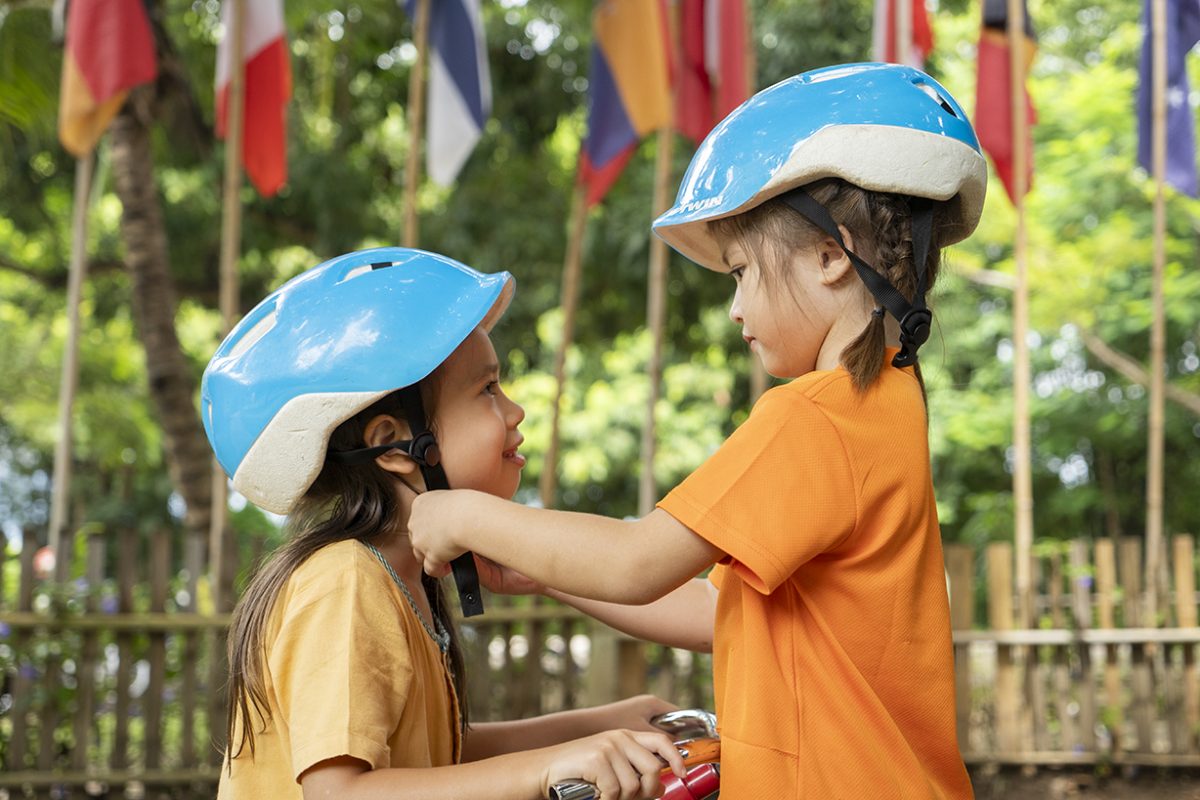
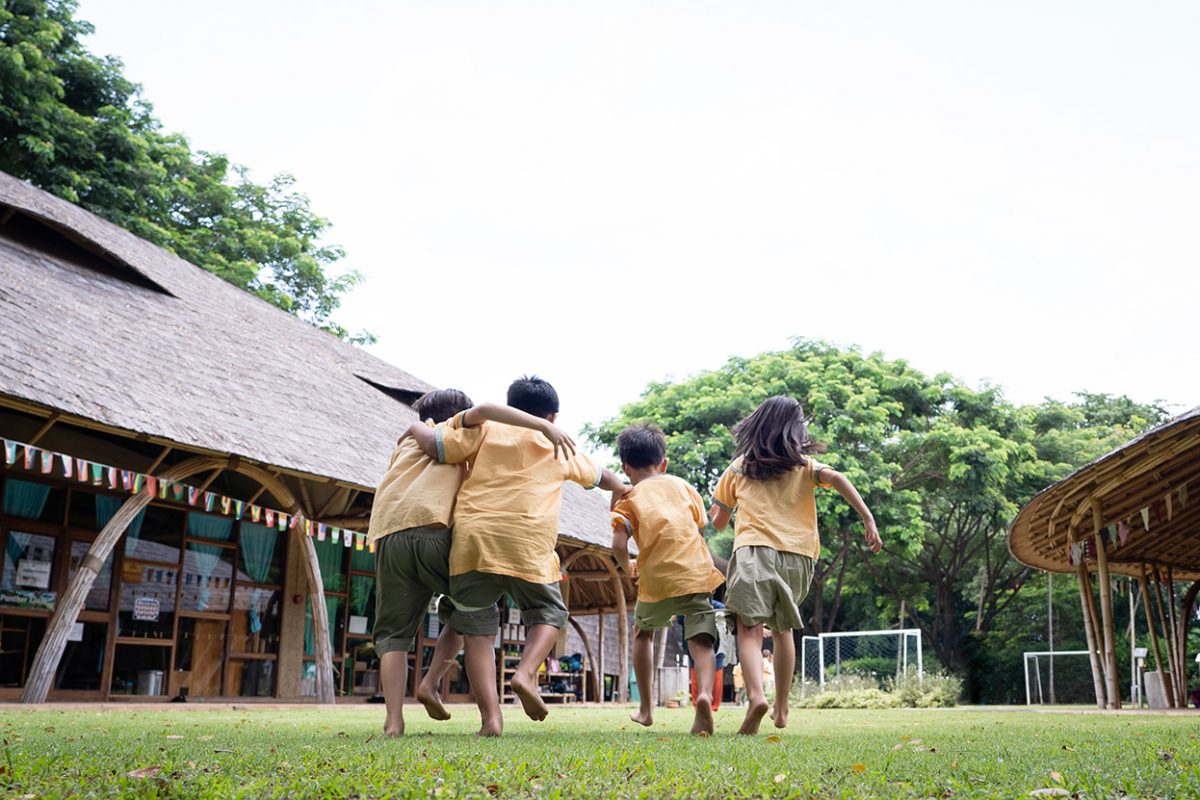
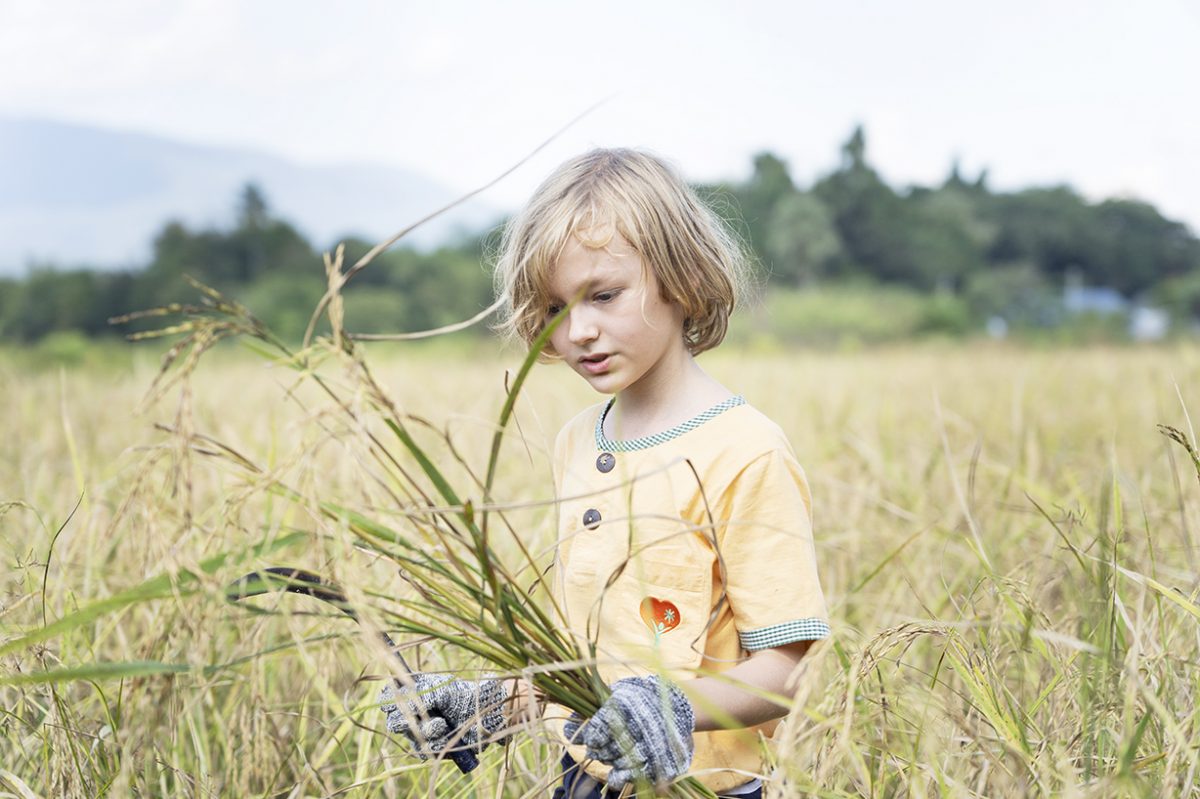
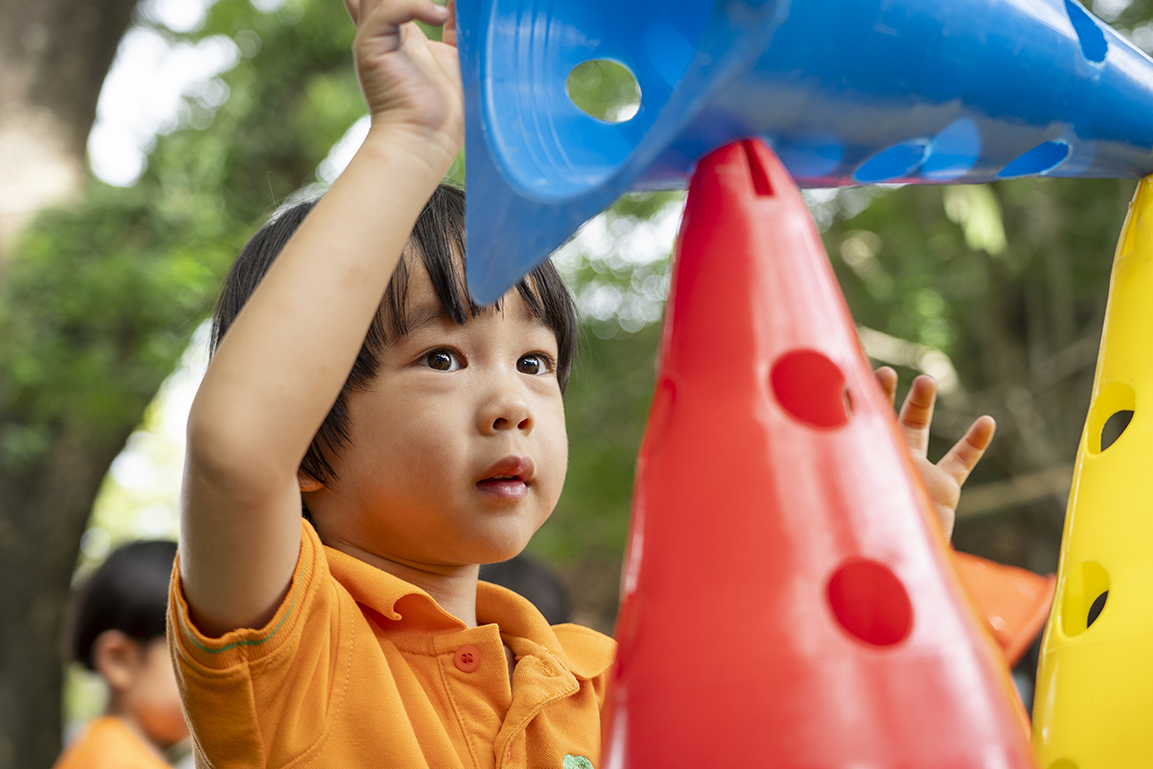
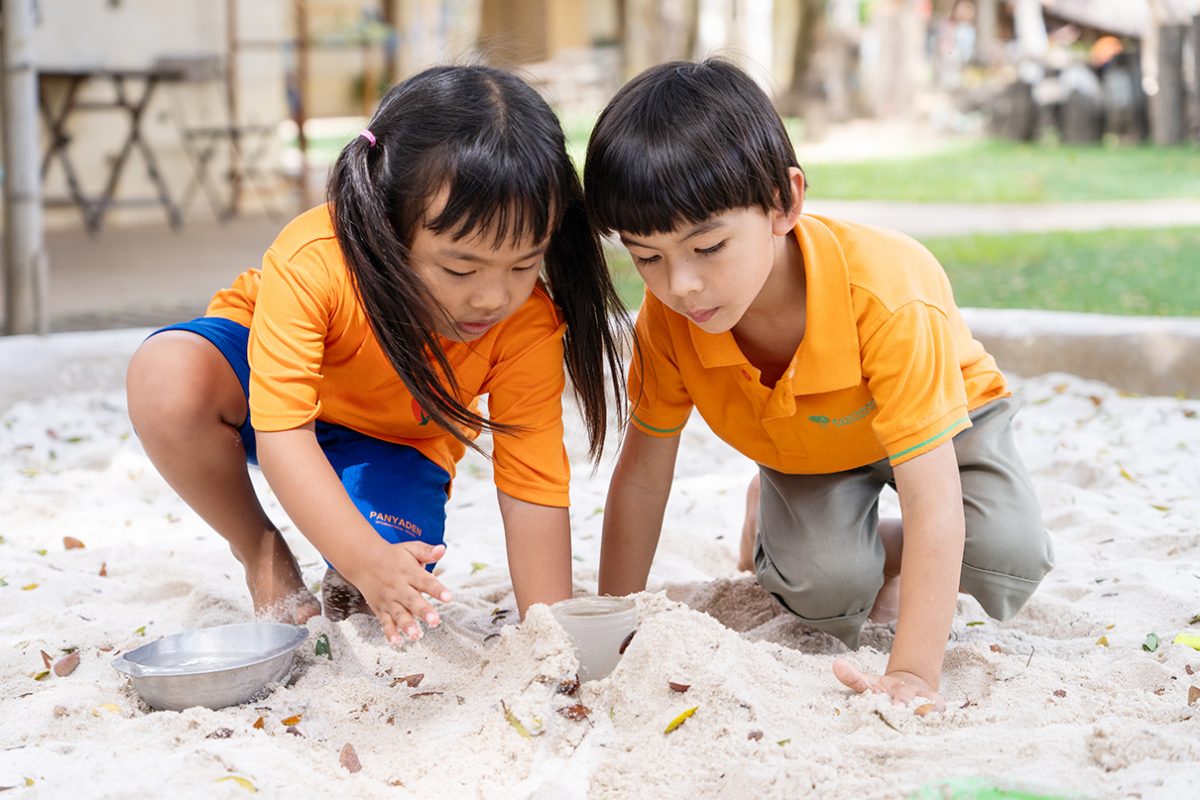
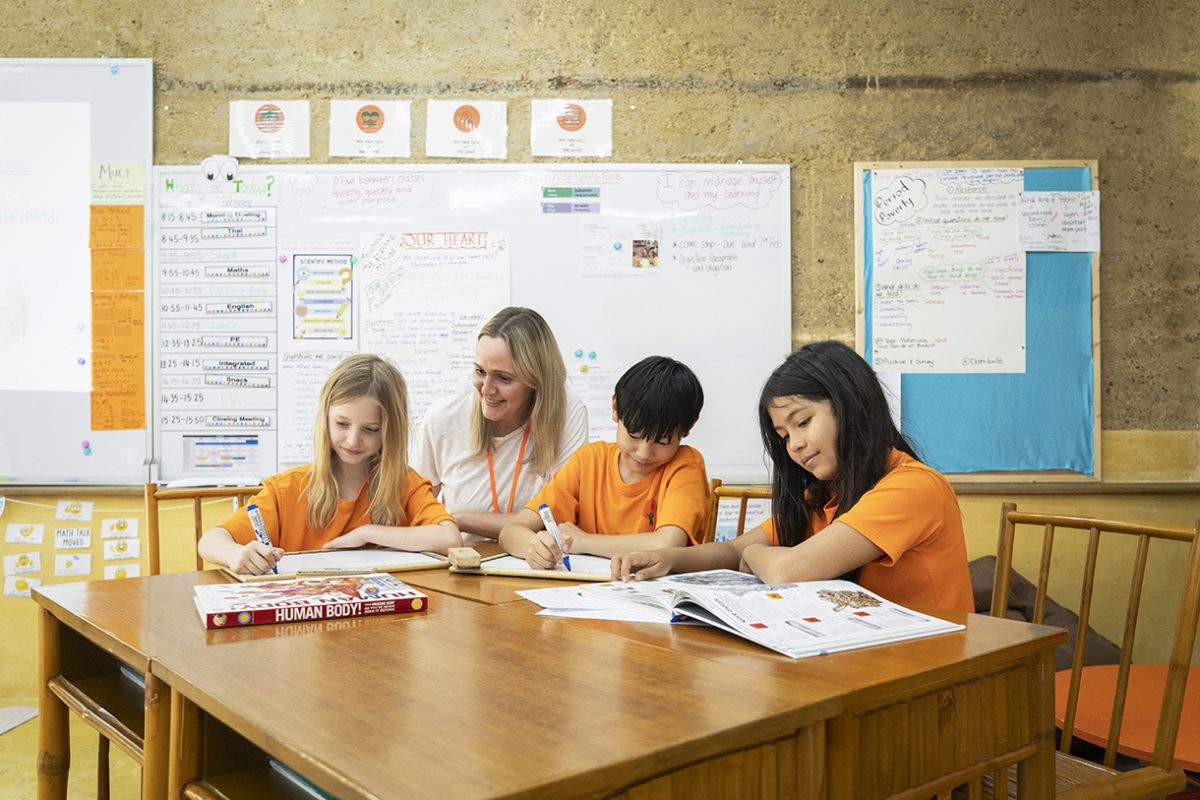

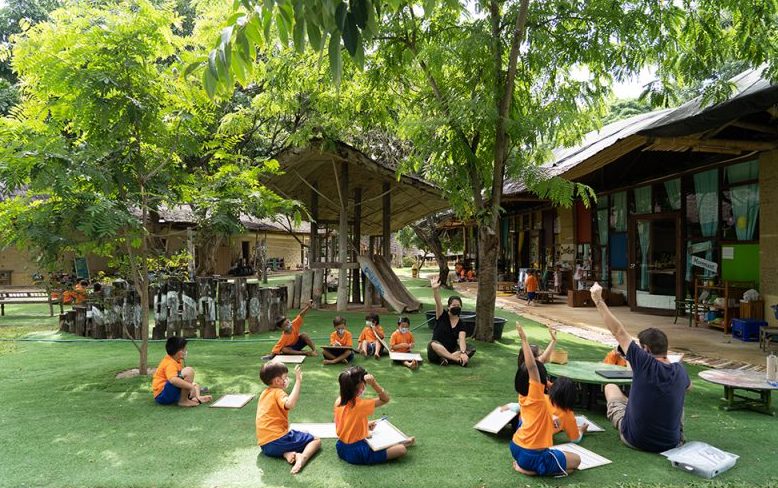
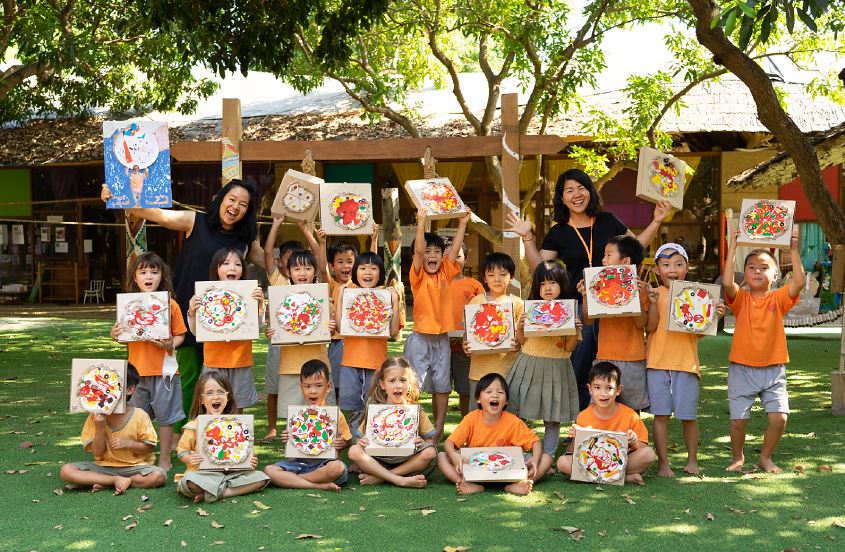
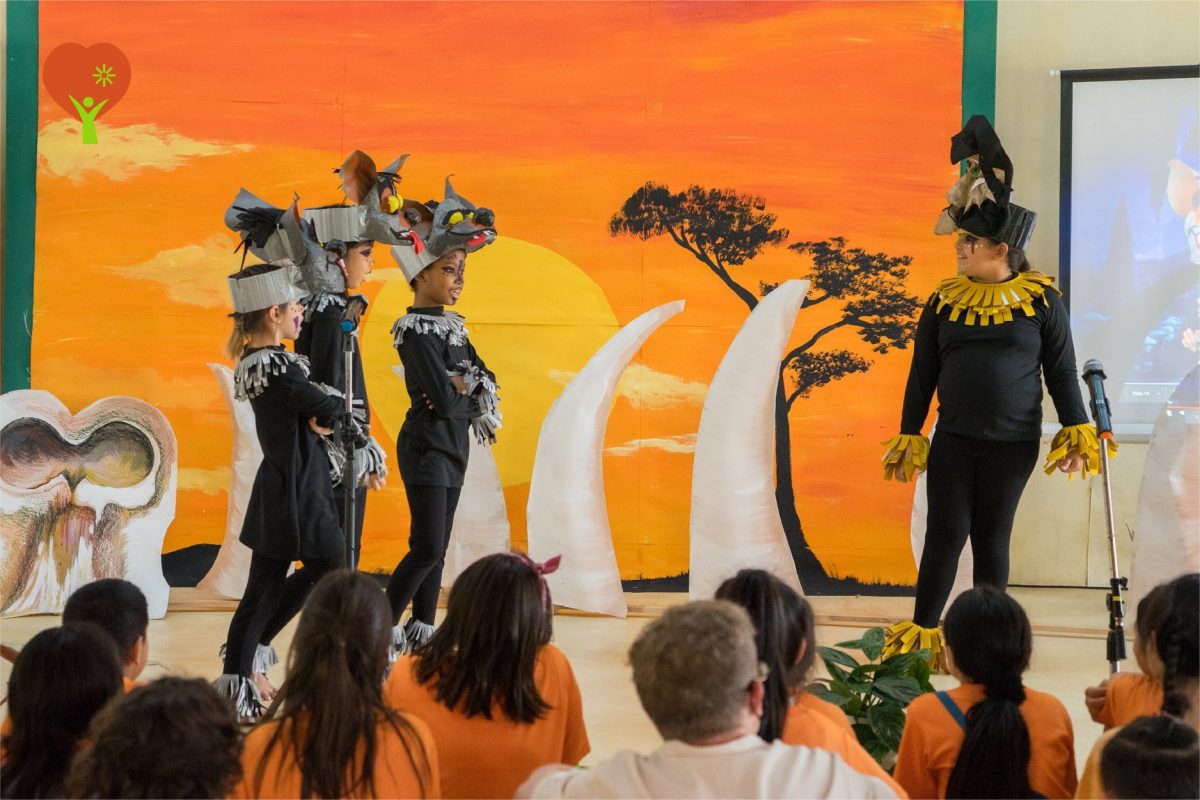
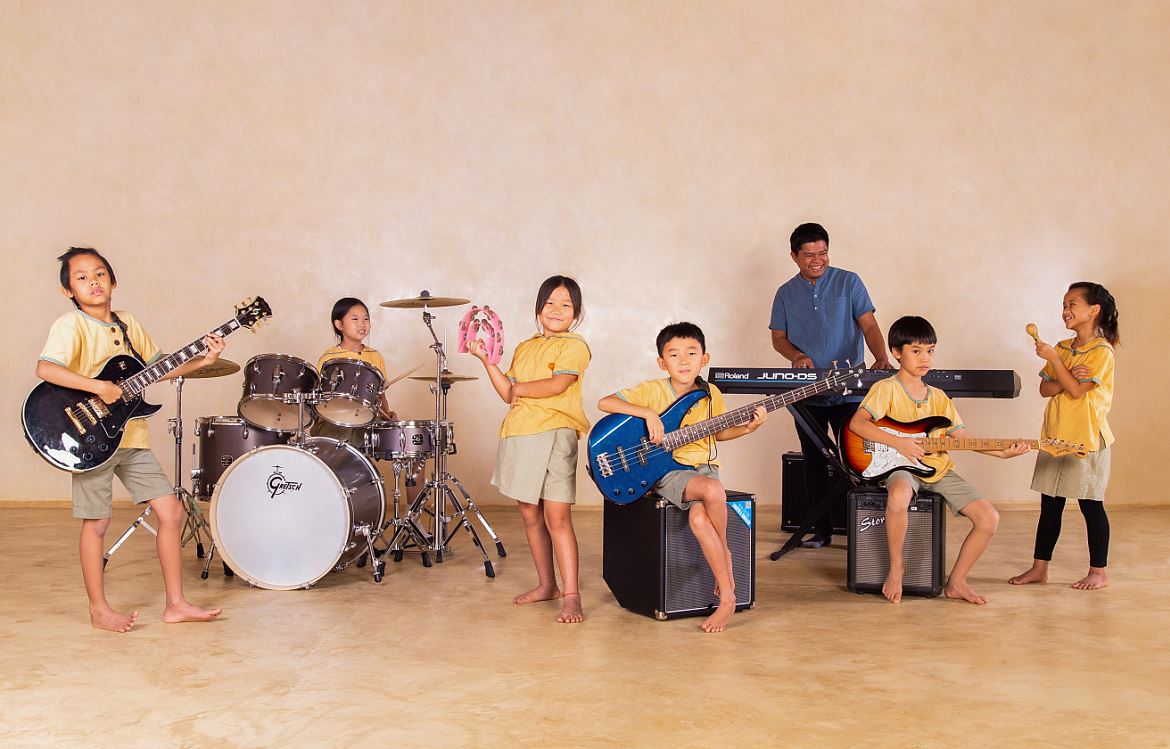
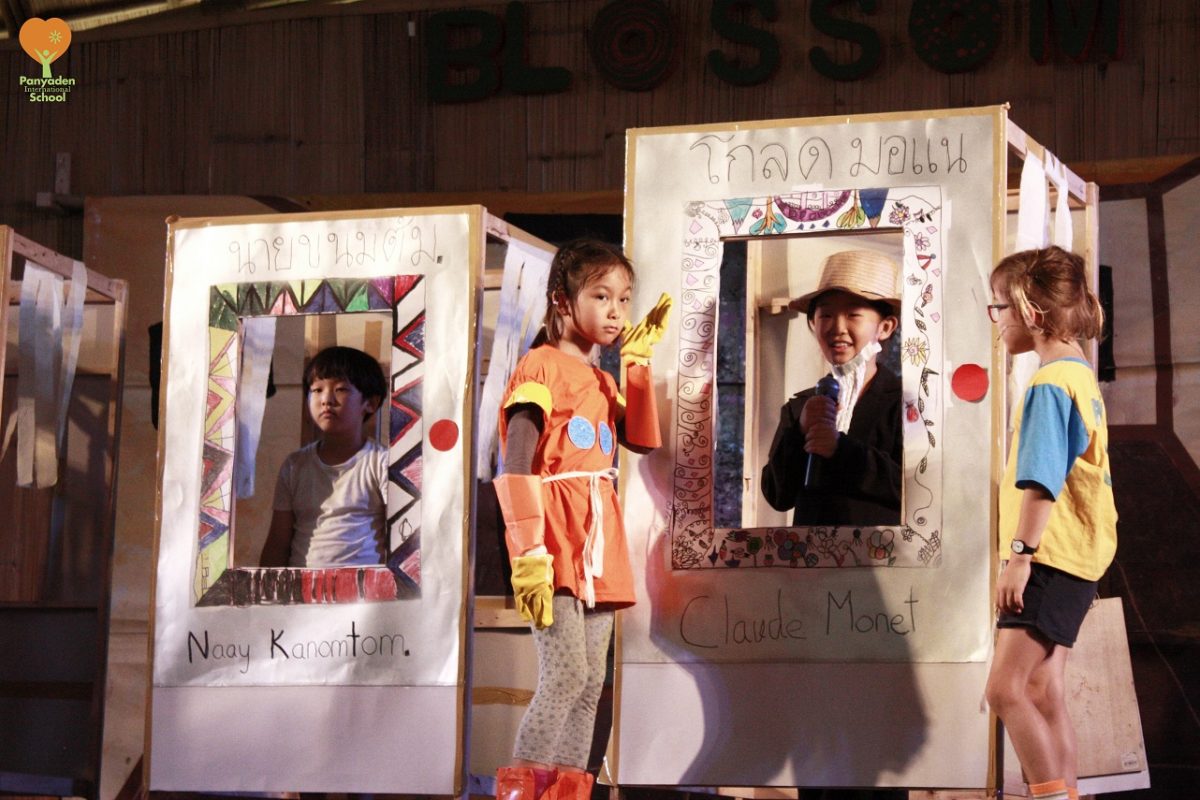

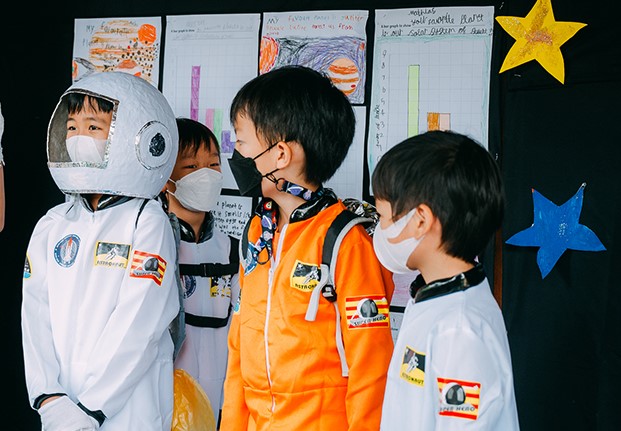
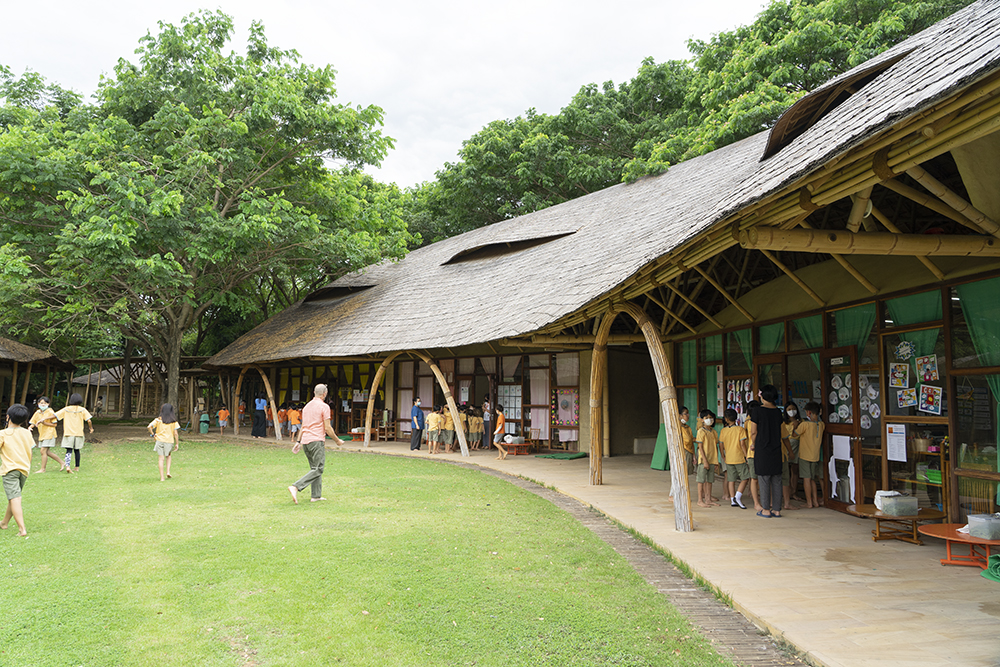















Teachers work together with specialists to make sure all subjects are integrated as much as possible. A typical day includes one hour of English, Thai, Maths, and a Specialist subject with clear connections to the IPC theme. Another hour each day is spent specifically on the theme of the Integrated Unit of Learning. Some themes might have a strong history and geography focus, while others focus more on science.
Active learning
Panyaden students spend most of their study time in learning stations where they are challenged, learn to work in teams and are encouraged to assume responsibility for their own learning. Our students enjoy a rich learning experience that offers open ended tasks and where they receive daily personalised feedback to enable students to improve their work.
Knowledge understanding
Learning is centred around three different kinds of objectives – knowledge, skills and understanding. Knowledge curriculum objectives can be memorised. Skills objectives can be demonstrated. Understanding objectives require students to take knowledge and skills and make real meaning from them. It is also the ability to transfer that understanding to other situations, whilst still being able to make meaning and sense of a situation, even if the facts have changed.
Phonics First
Year 1 to Year 3 students continue to learn reading and writing using the UK Letters and Sounds phonics programme first introduced in K1 as part of our pre-literacy program.
CAFE Literacy
The literacy CAFE system is a comprehensive set of reading strategies taught from Year 1 to Year 6.
- Comprehension
- Accuracy
- Fluency
- Expand Vocabulary
Both classic and modern literature from various genres is used at every year level to inspire students’ imagination and trigger critical thinking skills through literature discussions.
This includes reading aloud by the teacher as well as individual and small group reading activities. Younger students benefit from direct coaching through “guided reading”, during which same level readers share a book with the teacher.
Writing
From Year 1 to Year 6, a progressively bigger emphasis is placed on vocabulary acquisition, grammar and punctuation. Students become familiar with a range of writing purposes and text. We teach that writing is a multi-step process:
- The 1st step is to produce a “free writing” draft with a focus on letting the students express their ideas. We know that the secret to becoming a proficient writer is to write frequently. Not all free writing pieces will become a final piece of writing
- The 2nd draft comes after peer editing is received
- A 3rd draft is produced after receiving the teacher’s feedback
- The final writing piece is produced by each student and is expected to include all corrections as well as the style and grammar previously studied in class
The International Primary Curriculum (IPC)
The International Primary Curriculum is a thematic and inquiry based curriculum organised into integrated Units of Learning. The units are in line with the UK curriculum and provide a rigorous focus on learning.
- The entry point is a skilfully prepared activity that inspires students to connect to the theme and want to know more about it
- The knowledge harvest is where students recall what they already know, can do and understand about the subject and start asking questions about what else they want to discover
- The Big Picture is presented by the teachers and helps students see the connections between the various subjects related to the theme
- Research and record activities allow students to build on their knowledge, skills and understanding through inquiry based activities
- The exit point is an opportunity for students to reflect upon and celebrate what they have learned by sharing it with the school community
Assessment
Assessment takes many forms at Panyaden. The end of unit assessments lead to a grade for each subject included in that unit. Day to day learning includes differentiation and personalised feedback. International testing provides a chance to compare our students’ achievement levels to other international schools. Regardless of the type of assessment, we make sure they all provide feedback that enriches learning.
Here are a few ways we assess our students’ work:
- Rubrics – this a short text that describes a specific level of achievement. Students are often involved in writing rubrics that answer a few reflective questions what does a fully successful piece of work look like? What elements do you think you need to include in your work to make it the best it can be? Rubrics are used on a weekly basis
- End of Unit test – starting in Year 2, students will write a traditional exam to assess their knowledge and understanding of the content of the unit
- Projects – individual or team project and presentations allow students to show their skills, knowledge and understanding of the content of the unit
- Measure of Academic Progress – MAP is an internationally recognised online testing platform used in Year 2 to Year 6 classes early in the school year and then again towards the end of the year to measure the progress made by students in Reading, Maths and Sciences
- International School Assessment – ISA is an internationally recognised online testing platform used in Year 6 classes early in the school year and then again towards the end of the year to measure the progress made by students in Reading, Writing, Maths and Sciences
- Reporting to parents (fits under “International School Assessment” in Primary Education)
Primary students will receive an official report card at the end of both terms. Our dedicated teachers are happy to meet with parents to discuss their child’s progress at any time. Students also prepare their own portfolio and share it with parents at the end of each term.
Code of Conduct
Our code of conduct focusses on teaching students to make decisions that will benefit themselves and the people around them. Empowering the students instead of demanding compliance prepares them to resist negative peer pressure. The ultimate goal, therefore, is for the student to learn self-discipline.
Consequences for misbehaviour are enforced in a loving manner that leads students to reflect and learn. All interventions are adapted to the student’s level of cognitive and emotional maturity. We do not use punishment as it tends to teach students to lie to avoid being caught and rarely leads them to understanding why they should change their behaviour.
Group welfare has precedence over individual needs and it is sometimes necessary to physically move a student away from the rest of the group. This is not to be used as a punishment but as a tool. Panyaden “time out” is an opportunity for the child to reflect and calm down in preparation for reintegrating back to their group when ready.
Possible consequences
- Reflection time (student understanding why and willing to take that time away from peers)
- Sent to the Head Teacher or the School Principal to fill out a reflection sheet
- Open defiance warrants immediate referral to the Head Teacher or the School Principal
- Violence leads immediate suspension
Thank you for your interest in our Primary Years Programme. We openly welcome all enquiries from interested families throughout the year, so please feel free to contact us for more information, or to arrange a visit to Panyaden please apply for a school tour.
